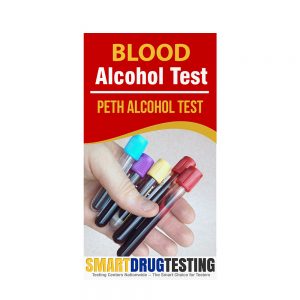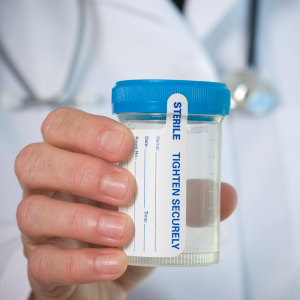Alcohol Testing in Columbia, PA

Same Day Service Available
"The Smart Choice for Testing"
-
Alcohol & ETG Testing
5 Panel + ETG Alcohol
Standard 5 Panel Non-DOT Urine Test With Alcohol Test Included.
$139.99 Order Now -
How to schedule your test
Smart Drug Testing, LLC in Columbia PA provides alcohol testing including breath alcohol (BAC), ETG alcohol testing utilizing both urine and hair alcohol testing methods. Alcohol testing is provided for employers needing a DOT alcohol test or individuals in need of alcohol testing for court ordered purposes. Smart Drug Testing, LLC also provides DOT physicals, DOT drug testing and DNA testing at locations throughout the Columbia PA area.
To schedule any type of alcohol test at our Columbia, PA locations, call our scheduling department. You can also schedule your alcohol test online utilizing our express scheduling registration by selecting your test and completing the Donor Information/Registration Section. You must register for the test prior to proceeding to the testing center.
The zip code you enter will be used to determine the closest alcohol drug testing center which performs the type of test you have selected. A donor pass/registration form with the local testing center address, hours of operation and instructions will be sent to the e-mail address you provided. Take this form with you or have it available on your smart phone to provide to the testing center. No appointment is necessary in most cases. However, you must complete the donor information section and pay for the test at the time of registration.
Smart Drug Testing, LLC is a nationwide company in Columbia, PA specializing in Drug, Alcohol, DNA testing. DOT Physicals and Background Checks. Tests are administered utilizing urine, oral/ saliva, hair follicle, blood and breath alcohol.
Drug test screening groups commonly used are a 5 panel, 10 panel and 12 panel drug test, (panels specify how many drugs will be screened) however customized screening can be analyzed for drugs such as opiates, bath salts, synthetic cannabinoids and a wide range of prescription drugs.
Smart Drug Testing, LLC in Columbia, PA also provides customized alcohol as well as drug testing for synthetic marijuana, Ketamine, spice, kratom, bath salts and various opioids including Fentanyl, Oxycodone, Vicodin, Percocet, and others. Prescription drugs can be screened including Adderall, Ritalin, and Suboxone with levels reflecting usage.
Providing exceptional customer service and being available when you need us, is our #1 Priority and we look forward to serving the needs of our clients.
Introduction to Columbia
Columbia, formerly Wright's Ferry, is a borough (town) in Lancaster County, Pennsylvania, 28 miles (45 km) southeast of Harrisburg on the east (left) bank of the Susquehanna River, across from Wrightsville and York County and just south of U.S. Route 30. The settlement was founded in 1726 by Colonial English Quakers from Chester County led by entrepreneur and evangelist John Wright. Establishment of the eponymous Wright's Ferry, the first commercial Susquehanna crossing in the region, inflamed territorial conflict with neighboring Maryland but brought growth and prosperity to the small town, which was just a few votes shy of becoming the new United States' capital. Though besieged for a short while by Civil War destruction, Columbia remained a lively center of transport and industry throughout the 19th century, once serving as a terminus of the Pennsylvania Canal. Later, however, the Great Depression and 20th-century changes in economy and technology sent the borough into decline. It is notable today as the site of one of the world's few museums devoted entirely to horology.
The area around present-day Columbia was originally populated by Native American tribes, most notably the Susquehannocks, who migrated to the area between 1575 and 1600 after separating from the Iroquois Confederacy. They established villages just south of Columbia, in what is now Washington Boro , as well as claiming at least hunting lands as far south as Maryland and Northern Virginia. Captain John Smith reported on the Susquehannock in glowing superlatives when a traveling group visited Jamestown, Virginia; he estimated their numbers to be about 2,000 in the early 1600s. The French ran across them in the area around Buffalo, apparently visiting the Wenro, and suggesting their numbers were far greater. The Province of Maryland fought a declared war for nearly a decade, signing a peace in 1632, against the Susquehannock Confederation who were allied to New Sweden and furnishing fire arms to the Susquehannocks in exchange for furs. The American Heritage Book of Indians reports the tribe occupied the entire Susquehanna Drainage Basin from the divide with the Mohawk River in lower New York State and part of the west side of the Chesapeake Bay in the Province of Virginia, while noting the confederation numbered between 10-20,000 in the mid-1660s when they came close to wiping out two Nations of the Iroquois. An virulent epidemic struck the Susquehannock towns during 1668 or 1669 and is believed to have lasted or recurred or morphed to plagues of other disease possibly killing up to 90% of the Amerindian nations people. By 1671-1672 they were beset on all sides—with attacks from colonial settlers, raids from the weakened Iroquois and the long subjugated Lenape band occupying the Poconos and Lehigh Valley. In that decade, Pennsylvania, Connecticut and New York all claimed the Susquehannock lands of the Wyoming Valley, where the remnants of the nation were to recoil into a few scant under populated towns. In 1678, the Governor of New York would sign a treaty with the League of the Iroquois requiring them to take in the Susquehannocks. The Iroquoian cultures universally supporting adoption, absorbed the people. Small bands moved west across the Susquehanna to new villages such as Conestoga Town and some are believed to have trekked through the gaps of the Allegheny to the virtually empty lands beyond the Alleghenies, perhaps mingling there with other Iroquoian peoples such as the Seneca, Wenro and Erie peoples forming the new clans and towns as the (new) Mingo people whose small bands known to be present in Western Pennsylvania and Eastern Ohio in the early 1800s.
In 1724, John Wright, an English Quaker, traveled to the Columbia area (then a part of Chester County) to explore the land and proselytize to a Native American tribe, the Shawnee, who had established a settlement along Shawnee Creek. Wright built a log cabin nearby on a tract of land first granted to George Beale by William Penn in 1699, and stayed for more than a year. The area was then known as Shawanatown.
Alcohol Testing Locations in Columbia PA
(Don't see a location near you? Call us (800) 977-8664)


